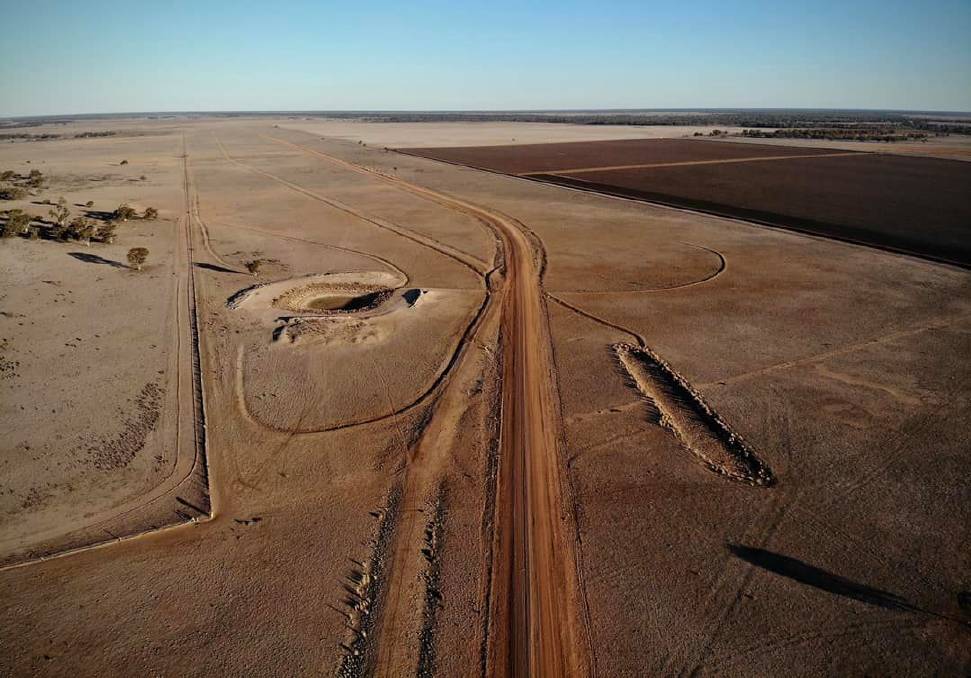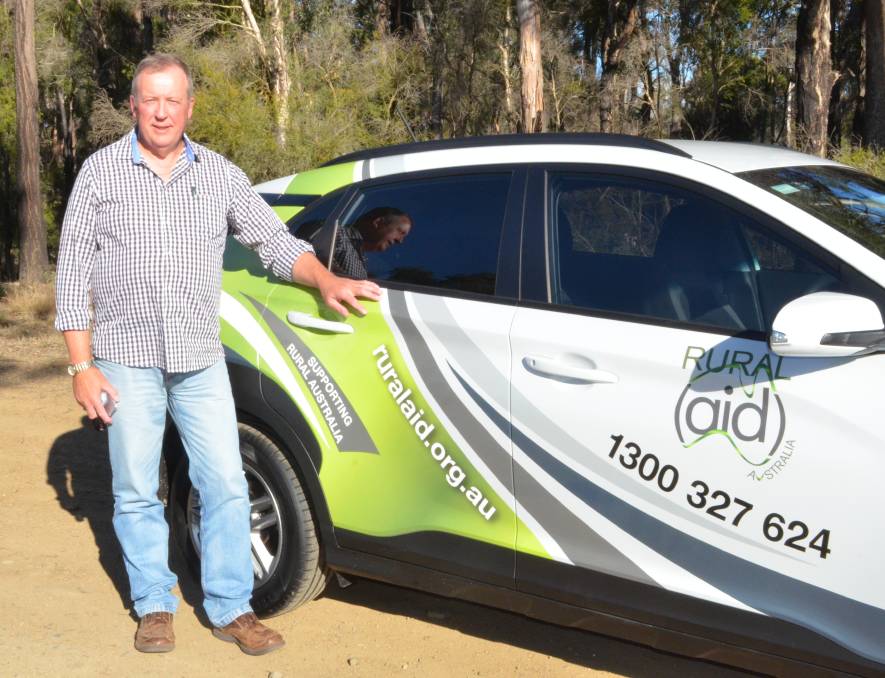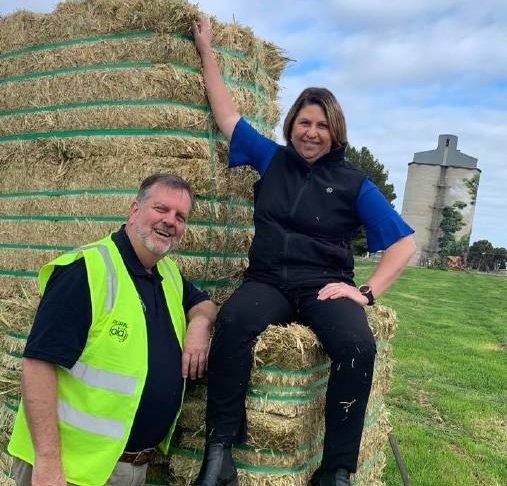Qantas and Rural Aid are delivering approximately 370 large bales of hay valued at over $150,000 to 40 farming families in the Eudunda region of South Australia. A further $20,000 in gift cards will be handed to farmers for everyday needs, such as groceries, water, petrol, and household necessities.
10 B-Double trucks loaded will roll into Eudunda on Wednesday morning, 31 July to assist local farming families struggling to feed stock. This is the second time the Buy a Bale initiative has delivered support to farming
families in the area.
The Eudunda Rural Aid hay drop is being funded from some of the $3 million dollars that Qantas committed to donating in August 2018; made up of a $1 million dollar immediate donation, an additional $1 million dollars
that has since been raised by customers through special charter flights, collection barrels in lounges, and donation of frequent flyer points, which was matched by Qantas with an additional $1 million dollars.
Rural Aid General Manager, Wayne Thomson said one of the worst droughts in Australia’s history is also impacting rural communities in South Australia.
“Thanks to the support of Australians who donate to Rural Aid, farmers who are struggling to afford the cost of fodder to feed their stock will receive some respite with this much needed hay.”
QantasLink CEO John Gissing said while Qantas was glad to have reached its initial $3 million-dollar fundraising goal that will offer some short-term relief to farming families around the country, regional communities continue to be crippled by the ongoing drought crisis.
“Having been founded in the outback nearly a century ago, Qantas has a deep connection with regional Australia and together with our customers and staff, we will continue to band together to provide ongoing support for our Aussie farmers as they front in to one of the worst droughts in decades.”
The airline has vowed to continue its efforts by operating future fundraising charter flights and through its ongoing partnership with Rural Aid.
Wayne Thomson added that $26,000 worth of musical instruments will be handed to local schools in the area as part of Rural Aid’s Gift of Music program which focusses on providing children in regional Australia with similar access to music programs and instruments as those living in the cities.
Donations received by Rural Aid aids farmers and communities during natural disasters in the form of fodder, financial assistance, gift cards and water delivery. In 2018/2019, thanks to the generosity of many Australians,
Rural Aid provided over $30 million of disaster-relief assistance.
If your organisation is looking for opportunities for corporate sponsorship, please contact Rural Aid on 1300 327 624 to find out how you can help to support our farmers and rural communities.
Qantas Fundraising Fast Facts:
• $3 million dollars is the equivalent of 15,900 bales of hay, across 480 trailers, or 249 road trains.
• A portion of the funds were used to assist 33 farmers purchase appx 1,000 cattle following the floods of NW Queensland.
• Fundraising activities included three charity charter flights, Rural Aid collection barrels placed in Qantas lounges and at Qantas and Jetstar gates for customers to donate.
• The airline hosted “Chops for Change” pop-ups at various lounges around the country where guests were offered gourmet lamb chops in exchange for a small donation.
• Qantas staff donated 650kg of dog food for the working farm dogs in the Tamworth region, timed with the Hay Mate benefit concert.
About Rural Aid
Rural Aid supports farmers and rural communities in times of natural disaster such as flood, fire and drought. In addition, Rural Aid focusses on supporting the sustainability of regional and farming communities. Its’ disaster relief program includes the nationally recognised Buy a Bale campaign. Other programs include providing volunteer support to rural towns, musical instruments to regional schools and mental health counselling. Visit www.ruralaid.org.au for further information on these programs and other support for our rural communities.
Media Contact:
Raylee Huggett – Rural Aid Communication and Media – 0422181796









